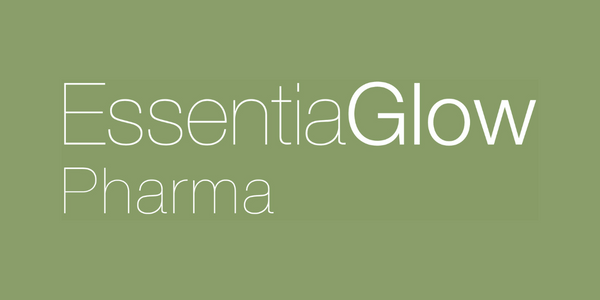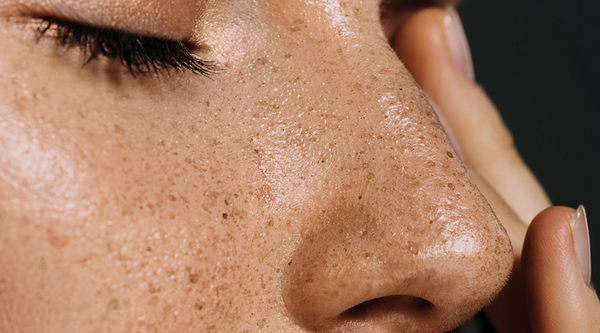Skin Health
Jul 16, 2024
Skin is the second largest organ in our body by surface area (the inside of the small intestine is 15 – 20 times larger), makes up one seventh of the total weight of an average person, and performs many functions that are vital to our overall wellbeing.
Our skin reflects what’s going on inside our bodies, as well as some of the external factors we may be exposed to. Its tone, texture and condition are often important indicators of the general state of our health.
In this article, we look at skin’s structure, the important role it plays in our health, factors that can affect it, and how we can look after it.
Skin structure
Skin is a complex structure composed of up to seven layers and many different cell types. The primary layers are the epidermis, the outermost layer which is a waterproof barrier and our first line of defence against the external environment; the dermis, the middle layer that gives skin its strength and elasticity and helps to protect the body from stress and strain; and the hypodermis, the deepest layer made up of fat and connective tissue that provides insulation and cushioning.
One average square inch of skin holds up to 650 sweat glands, 20 blood vessels, 60,000 melanocytes (the cells that give skin its pigmentation and help to protect against UV radiation), and more than 1,000 nerve endings. Types can range from dry to oily and around one thousand species of bacteria have been found across skin variations, making it a rich and diverse habitat.
Skin function
Our skin is so much more than just the external casing for our bones, muscles and other organs; it has multiple essential functions, including:
Protection against physical injury, providing a barrier against UV radiation and dehydration, and an immune defence against pathogens such as harmful bacteria, viruses or chemical threats. And being able to heal wounds through the formation of scar tissue.
Sensing touch, pain, temperature, and pressure through its thousands of nerve endings.
Regulating body temperature through sweat production and blood vessel dilation to keep our bodies cool, or giving us goosebumps and constricting blood vessels to help us retain heat.
Removing waste products through sweat.
Synthesising vitamin D when exposed to sunlight.
Storing fats and water.
Factors affecting skin health
The health of our skin is determined by many different factors, some of which we can control, others which we can’t.
Genetics will influence our skin type, colour, and susceptibility to certain skin conditions.
Aging causes our skin to lose elasticity and moisture; it becomes thinner and is more easily damaged and prone to itching, bruising and infection. The epidermis becomes slower at replacing dead skin cells and the healing process may take longer. Many age-related skin changes are because our bodies produce less collagen – a key component in skin structure - as we get older.
Environmental exposure like UV radiation, and harsh weather can damage the skin.
Lifestyle choices such as diet, hydration, smoking, our chosen skincare regime, excessive alcohol consumption and excessive, unprotected sun exposure all affect skin health.
Hormonal changes during puberty, pregnancy, and menopause can bring significant changes to our skin
Diseases like diabetes and skin disorders like eczema and psoriasis impact skin health.
Chronic stress releases two powerful hormones, cortisol and adrenaline, into our bodies setting off a complex reaction that can make skin more sensitive and reactive and even speed up the aging process.
Maintaining healthy skin
As we’ve just seen, lots of things affect our skin. While we can’t alter our genetics or reverse the aging process, if we take a holistic approach, there’s still plenty we can do to maintain skin health so that it keeps looking good and functioning optimally.
Develop a consistent daily skincare regime to keep skin clean, well moisturised, and protected from the sun (dermatologists recommend using sunscreen with at least SPF30 and avoiding excessive sun exposure). It’s important that we get to know our skin, find out what products will best suit our needs, and adapt our regime to any significant changes.
Drink plenty of water and eat water-rich foods fruits and vegetables to keep hydrated.
Avoid smoking, excessive alcohol consumption and a diet high in refined sugars and ultra-processed foods, all of which have been shown to reduce and degrade collagen, leading to an acceleration of skin aging.
Manage stress with a combination of relaxation techniques, regular exercise, proper sleep, maintaining strong social connections, and support from family, friends or health professionals.
Eat a balanced, varied, whole foods-based diet that’s rich in vitamins, minerals, nutrients and antioxidants. Here are some of the most beneficial ones:
Vitamin A – essential for skin repair and maintenance; found in carrots, sweet potatoes, squash, leafy greens, oily fish like mackerel and tuna, and eggs.
Vitamin C – a powerful antioxidant that helps in collagen production and protecting the skin from damage caused by free radicals; good sources include citrus fruits, berries, bell peppers, broccoli and cauliflower.
Vitamin E – helps protect the skin from oxidative stress and UV damage and has anti-inflammatory properties; found in olive and rapeseed oils, nuts and seeds, and avocados
Vitamin D - crucial for skin cell growth, repair, and metabolism; found in a relatively small number of foods including oily fish, fortified cereals, eggs, red meat and mushrooms.
Zinc – crucial for skin healing, reducing inflammation and protecting the skin from UV damage; good sources include red meat, shellfish, legumes such as chickpeas and kidney beans, nuts, hemp and pumpkin seeds, and tofu.
Selenium – protects skin from oxidative damage and infections and helps preserve its elasticity; found in Brazil nuts, seafood and whole grains.
Copper – essential for collagen and elastin production, which helps maintain skin firmness and elasticity; good sources include seafood like crab and salmon, cashew nuts, mushrooms, potatoes and dark chocolate.
Omega-3 fatty acids help maintain the skin's lipid barrier and reduce inflammation; found in oily fish, flaxseeds and walnuts.
Collagen - is the most abundant structural protein in our bodies and is found in connective tissue, skin, tendons, bones, and cartilage. We produce it naturally, but our ability to do so reduces as we get older, so eating collagen supporting foods such as citrus fruits, skin-on chicken, fish, eggs, berries and bone broth can be helpful. Many people also take collagen supplements as some research suggests these can also be beneficial for skin health.
EssentiaGlow offers a range of supplements that support skin health. Some of the best are: Beach Rose Hip, Coenzyme Q10, Omega-3 Fish Oil, Skin Collagen and Vitamin D.

